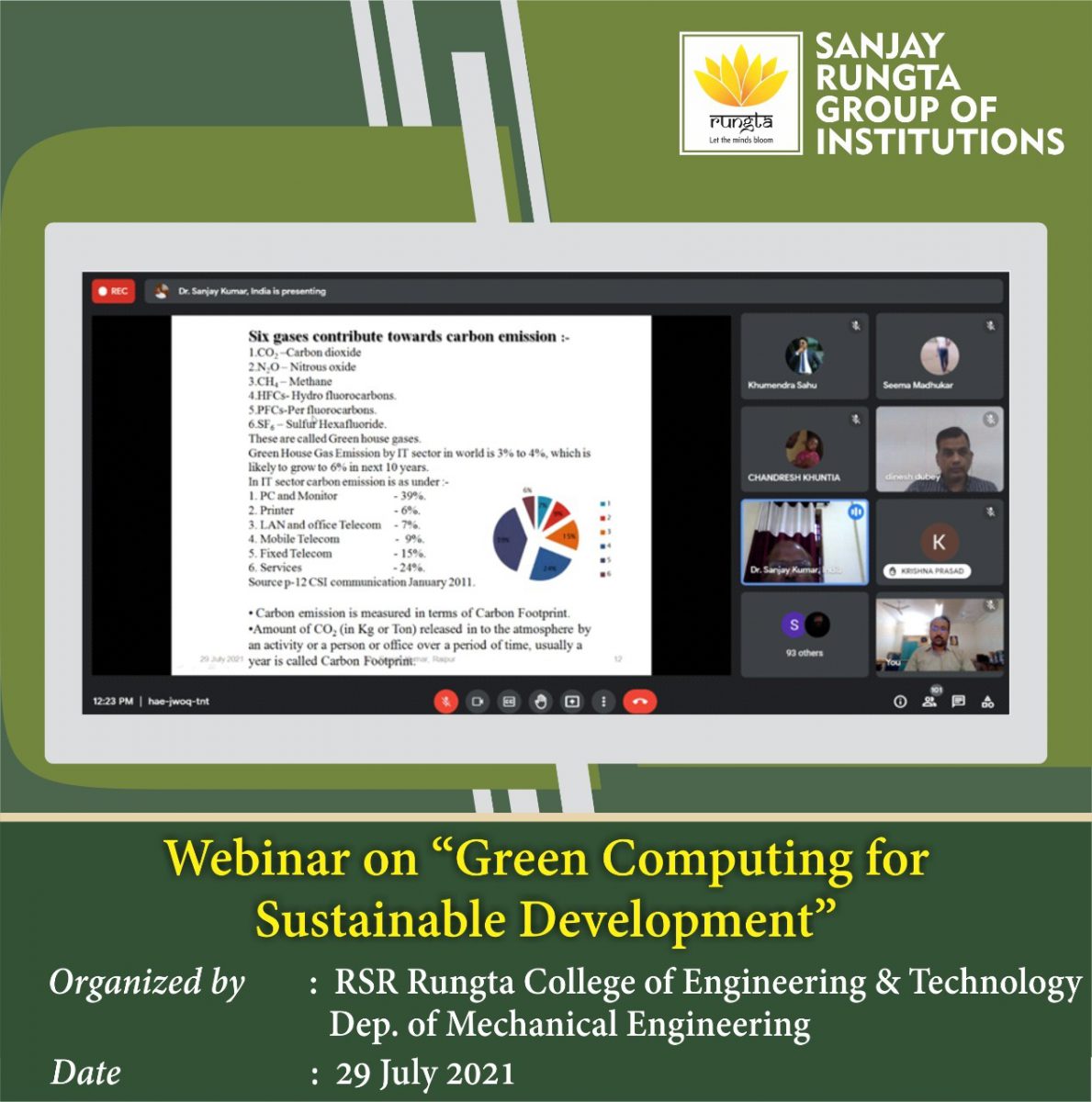- Share on :
- More
Webinar on “Green Computing for Sustainable Development” organised by Sanjay Rungta Group
A Webinar on Green Computing for Sustainable Development was organized in Sanjay Rungta Group of Institutions, Bhilai campus by Mechanical Engineering Department of RSR Rungta College of Engineering and Technology. Dr. Sanjay Kumar, Professor, Head and Dean of Department of Computer Science Engineering,Pandit Ravishankar Shukla University, Raipur (INDIA), was the resource person of the webinar; he gave deep insight of Green Computing Techniques, its various aspects and implementation for Environment Protection. He also described the various ways of controlling and reducing the carbon emission rate to protect the environment.
Green computing is the environmentally responsible and eco-friendly use of computers and their resources. In broader terms, it is also defined as the study of designing, engineering, manufacturing, using, and disposing of computing devices in a way that reduces their environmental impact. Green Computing involves reducing the environmental impact of technology that means using less energy reducing waste, and promoting sustainability. Green computing aims to reduce the carbon footprint generated by the Information Technology and Systems business and related industries. Energy-efficiency and e-waste are two major techniques involved in green computing.
This webinar session included various processes and activities in our day-to-day life that contributes to carbon emission. No matter what field of study you are interested in, you have a very important role
If we think computers are non-to play and contribute towards the protection of our environment and the ecosystem. polluting and consume very little energy, in fact the use of computer plays a big role in environment pollution. It is estimated that out of $250 billion per year spent on powering computers worldwide only about 15% of that power is spent computing, the rest is wasted idling (i.e., consumed by computers which are not in use but still turned ON). That consumed energy is the main reason of CO2 emission, thus, energy saved on computer hardware and computing will equate tones of carbon emissions saved per year.
A recent example is seen in Intel’s 2030 strategy. Intel has been committed to continued progress on achieving net positive water use, 100% green power and zero waste to landfills across Intel’s global manufacturing operations. Further, Intel has also included one highly unique component: “shared” climate and social goals – that require collaboration with industries, governments, and communities.
The lecture was attended by faculty members, UG and PG students of different University & colleges. The students have taken keen interest in webinar and more than 100+ students participated actively and enthusiastically.
Principal Dr. S. V. Deshmukh, Dean Academics Dr. Lokesh Singh, Head of Department Prof. Dinesh Dubey, Organizer Prof. Pratik Pandya, faculty members of various colleges across Chhattisgarh and a large number of students attended the webinar. Group Chairman Shri Sanjay Rungta and Group Director Shri Saket Rungta congratulated the organizers and participants for the successful conduction of the webinar.




